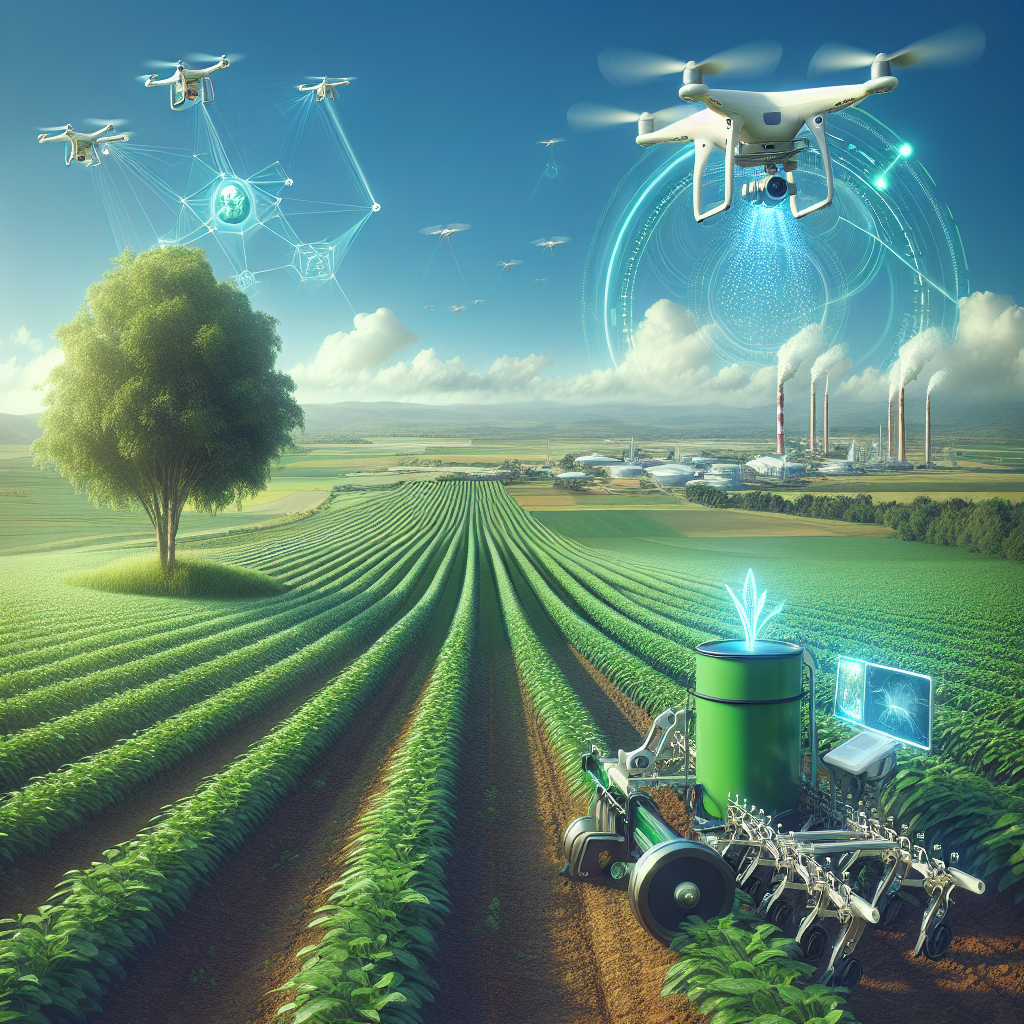AI-Driven Solutions for Climate-Smart Agriculture and Adaptation
Climate change is one of the most pressing issues facing the world today, with its impacts being felt across various sectors, including agriculture. Climate-smart agriculture is a holistic approach that seeks to address the challenges posed by climate change while ensuring sustainable food production. One of the key tools in achieving climate-smart agriculture is artificial intelligence (AI), which can help farmers adapt to changing climatic conditions and improve their productivity.
AI technologies have the potential to revolutionize the agricultural sector by providing farmers with real-time data on weather patterns, soil conditions, crop health, and pest infestations. This information can help farmers make informed decisions about when to plant, fertilize, irrigate, and harvest their crops, thereby increasing yields and reducing losses.
One of the key benefits of AI-driven solutions for climate-smart agriculture is their ability to optimize resource use. By analyzing data collected from sensors, drones, and satellites, AI algorithms can recommend the most efficient use of water, fertilizers, and pesticides, reducing waste and environmental impact. This not only benefits farmers by lowering input costs but also helps to conserve natural resources and reduce greenhouse gas emissions.
AI technologies can also help farmers adapt to the impacts of climate change by providing early warnings of extreme weather events, such as droughts, floods, and storms. By receiving timely alerts, farmers can take proactive measures to protect their crops and livestock, such as adjusting irrigation schedules, reinforcing infrastructure, or moving animals to safer locations. This can help to minimize losses and ensure food security in the face of increasingly unpredictable weather patterns.
Another important application of AI in climate-smart agriculture is in the development of resilient crop varieties. By analyzing genetic data and environmental factors, AI algorithms can identify traits that make crops more resistant to heat, drought, pests, and diseases. This information can be used to breed new varieties that are better adapted to changing climatic conditions, ensuring food security for future generations.
In addition to on-farm applications, AI technologies can also help to improve supply chain efficiency and reduce food waste. By analyzing data on market demand, transportation routes, and storage conditions, AI algorithms can optimize logistics and distribution networks, ensuring that food reaches consumers in a timely and cost-effective manner. This can help to reduce spoilage and losses along the value chain, while also lowering the carbon footprint of food production and distribution.
Overall, AI-driven solutions have the potential to transform agriculture into a more sustainable and resilient industry, capable of meeting the challenges of climate change. By harnessing the power of AI to optimize resource use, improve decision-making, and enhance resilience, farmers can adapt to changing climatic conditions and ensure food security for future generations.
FAQs
Q: What is climate-smart agriculture?
A: Climate-smart agriculture is an approach that seeks to address the challenges posed by climate change while ensuring sustainable food production. It involves practices that help farmers adapt to changing climatic conditions, reduce greenhouse gas emissions, and enhance resilience.
Q: How can AI help farmers adapt to climate change?
A: AI technologies can provide farmers with real-time data on weather patterns, soil conditions, crop health, and pest infestations, helping them make informed decisions about when to plant, fertilize, irrigate, and harvest their crops. AI algorithms can also optimize resource use, provide early warnings of extreme weather events, and develop resilient crop varieties.
Q: What are the benefits of AI-driven solutions for climate-smart agriculture?
A: AI-driven solutions can help farmers increase yields, reduce losses, lower input costs, conserve natural resources, reduce greenhouse gas emissions, and improve supply chain efficiency. By optimizing resource use, improving decision-making, and enhancing resilience, AI technologies can help farmers adapt to changing climatic conditions and ensure food security.
Q: How can AI technologies be used to reduce food waste?
A: AI technologies can analyze data on market demand, transportation routes, and storage conditions to optimize logistics and distribution networks. By ensuring that food reaches consumers in a timely and cost-effective manner, AI algorithms can help to reduce spoilage and losses along the value chain, while also lowering the carbon footprint of food production and distribution.

